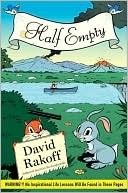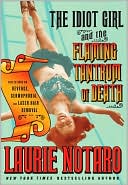What Do You Care What Other People Think?: Further Adventures of a Curious Character
The New York Times bestseller: sequel to "Surely You’re Joking, Mr. Feynman!"—funny, poignant, instructive.\ One of the greatest physicists of the twentieth century, Richard Feynman possessed an unquenchable thirst for adventure and an unparalleled ability to tell the stories of his life. "What Do You Care What Other People Think?" is Feynman’s last literary legacy, which he prepared as he struggled with cancer. Among its many tales—some funny, others intensely moving—we meet Feynman’s first...
Search in google:
The New York Times bestseller: sequel to "Surely You’re Joking, Mr. Feynman!"—funny, poignant, instructive.Publishers WeeklyRoughly half of these 21 short, colloquial essays deal with Feynman's firsthand investigaton of the Challenger space-shuttle disaster. He casts himself in the role of intrepid detective, and the first-person singular pronoun keeps intruding on the worthwhile things he has to say about flight safety and lack of communication within NASA. An appendix offers his chilling technical observations on the shuttle's reliability or lack of it. The remaining pieces are mostly a blur of international conferences, purveying slight anecdotes. But two essays touch genuine depths of feeling: his tribute to his father, who taught him to cultivate a sense of wonder, and his account of his love affair with his first wife (who died). In this posthumous miscellany, theoretical physicist Feynman displays only sporadically the adventurousness that captivated readers of Surely You're Joking, Mr. Feynman. (October)
\ The New York Times Book ReviewFeynman’s voice echoes raw and direct through these pages.— James Gleick\ \ \ \ \ Publishers Weekly - Publisher's Weekly\ Roughly half of these 21 short, colloquial essays deal with Feynman's firsthand investigaton of the Challenger space-shuttle disaster. He casts himself in the role of intrepid detective, and the first-person singular pronoun keeps intruding on the worthwhile things he has to say about flight safety and lack of communication within NASA. An appendix offers his chilling technical observations on the shuttle's reliability or lack of it. The remaining pieces are mostly a blur of international conferences, purveying slight anecdotes. But two essays touch genuine depths of feeling: his tribute to his father, who taught him to cultivate a sense of wonder, and his account of his love affair with his first wife who died. In this posthumous miscellany, theoretical physicist Feynman displays only sporadically the adventurousness that captivated readers of Surely You're Joking, Mr. Feynman. October\ \ \ Library JournalFollowing the success of the late Nobel laureate's first commercial book, Surely You're Joking, Mr. Feynman 1984, this second was perhaps an inevitability. The book has problems, but it is worthwhile nonetheless. In general, the new anecdotes lack the wit, novelty, and outrageousness of those in the earlier work. The book's second half is the high point; it is topical, entertaining, and illuminating, and telells of Feynman's work on the Rogers Commission, which investigated the Challenger space shuttle disaster. Readers who bypass the first part, which is rife with unconnected tales, will be happy to find this in their libraries. Gregg Sapp, Idaho State Univ. Lib., Boise\ \








